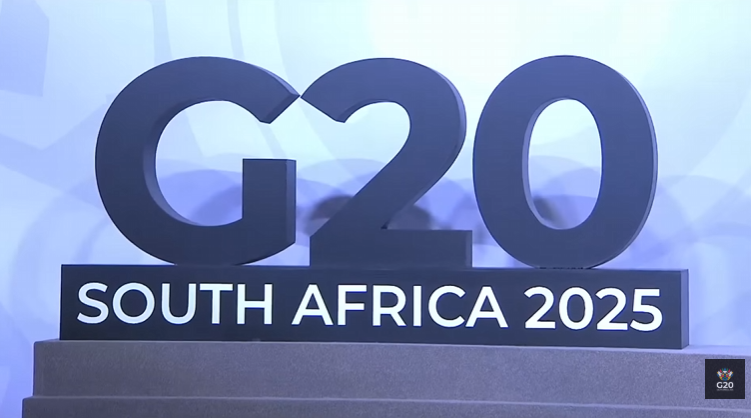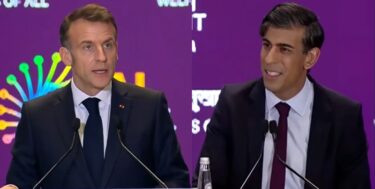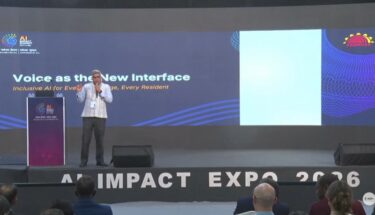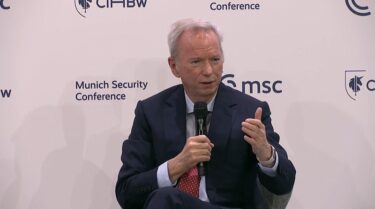DPI means your digital identity will follow you everywhere — everything you do and say — and it will be connected to your finances, and all the information will be shared between public and private entities: perspective
The B20 and G20 summits in South Africa conclude with recommendations and commitments to promote interoperable digital identity and Digital Public Infrastructure (DPI) rollouts.
On the heels of the Business 20 (B20) Summit, which ran from November 18-20, the Group of 20 (G20) Summit took place over the weekend, with both groups calling for interoperable DPI for people and businesses.
“Promote the use of digital identity integrity tools, such as the Legal Entity Identifier, to enhance transparency”
B20 South Africa Final Communique, November 2025
The B20 South Africa 2025 Summit concluded with a “Final Communique” filled with recommendations and actions for the G20 to adopt.
On the digital transformation front, the B20 leadership had four recommendations:
- Close usage and connectivity gaps
- Increase the penetration of digital literacy
- Drive aligned AI governance
- Encourage inclusive Digital Public Infrastructure ecosystems
For the B20 Task Force on Digital Transformation, “Access to secure digital identities plays a foundational role for participation in digital economies and equitable access to digital services.”
In September, this task force called on G20 members to “develop frameworks to guide countries in designing and implementing people-centered DPI.”
Next came the G20 Summit, which ran from November 22-23 and dedicated just one paragraph to DPI in its “Leaders’ Declaration,” stating:
“We recognize the transformative potential of digital public infrastructure to advance equitable, inclusive, prosperous, resilient and sustainable digital transformation that can respond to the needs of local communities.”
Governments, corporations, and NGOs say that DPI is all about convenience, security, and making sure nobody is left behind in the digital age.
“Enable interoperable digital public infrastructure, including e-IDs, e-payments and data standards, to lower transaction costs and boost SME participation in digital trade”
B20 South Africa Final Communique, November 2025

“1.1 billion people still lack a digital identity”
B20 South Africa Final Communique, November 2025
If we go through each B20 recommendation one-by-one, they each feed into one another, culminating with digital identity for the coming digital control grid.
First you have to get everyone connected to the internet to close the “connectivity gap.”
There are currently 2.6 billion people who don’t have internet.
For businesses, that represents 2.6 billion potential customers, and for governments, that’s 2.6 billion people that might not be properly taxed or surveilled.
“As AI and automation reshape economies, those investing in digital infrastructure, talent and innovation will capture the next wave of productivity and growth. Yet gaps in connectivity and capability persist where 2.6 billion people remain offline globally”
B20 South Africa Final Communique, November 2025
Once everyone is connected to the internet, next comes digital literacy.
“Digital literacy” they say is about upskilling the workforce.
But beneath the surface, digital literacy is not about learning how to empower oneself with knowledge of the encroaching digital panopticon, but rather how to indoctrinate the public into giving up their private information to feed the AI systems.
And this brings us to “driving aligned AI governance,” which is an attempt to get all governments onboard with the same global system while simultaneously trying to convince the public into buying what they’re selling.
So, after 2.6 billion people join the rest of the world with an internet connection, then comes the digital indoctrination to manipulate them into giving up their personal data to make room for the last recommendation — supporting interoperable DPI rollouts.
“Promote secure and inclusive digital public infrastructure (DPI) ecosystems that incentivize private sector innovation and investment […] Support the development of frameworks to guide countries in designing and implementing people-centered DPI”
B20 South Africa Final Communique, November 2025
DPI is a civic technology stack consisting of three main components: digital identity, fast payment systems, and massive data sharing between public and private entities.
The B20 Final Communique recommendations on digital transformation is a near carbon copy of the UN “Global Digital Compact,” which is an annex to the “Pact of the Future,” which 193 UN member states endorsed at the Summit of the Future in September 2024.
According to the UN, “A Global Digital Compact would articulate a shared vision of an open, free, secure and human-centered digital future that rests on the purposes and principles of the Charter of the United Nations, the Universal Declaration of Human Rights and the 2030 Agenda.”
This “shared vision” has five objectives:
- Close all digital divides and accelerate progress across the Sustainable Development Goals
- Expand inclusion in and benefits from the digital economy for all
- Foster an inclusive, open, safe and secure digital space that respects, protects and promote human rights
- Advance responsible, equitable and interoperable data governance approaches
- Enhance international governance of Artificial Intelligence for the benefit of humanity
Just like the B20 recommendations, the UN, too called for everyone to have internet access in order to participate in the digital economy via their digital identity, and to have AI process and make sense of all that data.
What the B20 and G20 final papers both leave out; however, is any mention of what the UN calls “information integrity.”
Information integrity refers to promoting only UN-approved narratives while labeling anything that runs to the contrary as disinformation, misinformation, or hate speech.
While the B20 and G20 leave this part out, an independent group that runs parallel to the G20, called the Media 20 (M20), published an information integrity manifesto on November 20 called “Media Summit Urges Global Prioritization of Information Integrity for The Public Good.”
In that urgent plea, the M20 denounced harmful disinformation without ever once giving an example of so-called disinformation.
“Independent, economically viable media are indispensable to sustainable development and to safeguarding societies against misinformation and disinformation”
M20, Media Summit Urges Global Prioritization of Information Integrity for The Public Good, November 2025
According to the M20, “The dramatic shrinkage in the media landscape, linked to the decline in financial viability and weakening democratic credentials in many countries, leaves space for disinformation, including harmful content generated with artificial intelligence. This phenomenon creates doubts, hinders policy actions, and divides society.
“Mis- and disinformation are being amplified by AI platform algorithms and reintegrated as training data for new AI models, further perpetuating a downward spiral in the quality of information.”
The M20 document claims that independent media is “indispensable to sustainable development and to safeguarding societies against misinformation and disinformation.”
Independent media means that it is typically free from government funding and influence.
So naturally, one of the M20’s solutions for combatting so-called disinformation is for governments to fund journalism.
“The [G20 Leaders’] Declaration should commit to the creation of public funding models for journalism, comparable to those that support other public goods, while ensuring strong guarantees of editorial independence and universal access to reliable information“
M20, Media Summit Urges Global Prioritization of Information Integrity for The Public Good, November 2025
Can a media organization be truly independent if it relies on the government for funding?
The G20 Leaders’ Declaration 2025 makes no mention of misinformation, disinformation, or information integrity — neither does the B20 Final Communique.
The only mention of the “media” comes from the G20, which refers to supporting media to fight corruption, stating:
“We recognize the role played by individuals and groups outside the public sector in preventing and fighting corruption and will promote the active engagement with participation of civil society, academia, the media and the private sector in accordance with UNCAC [United Nations Convention Against Corruption], other relevant international obligations and domestic legal frameworks.”
Nevertheless, the G20 Leaders’ Declaration supports “digital public infrastructure to advance equitable, inclusive, prosperous, resilient and sustainable digital transformation that can respond to the needs of local communities.”
Digital Public Infrastructure is the ecosystem where groups like the UN and M20 push for “information integrity.”
“Authoritarianism is easier in a world of total visibility and traceability, while democracy may turn out to be more difficult”
WEF, Global Risks Report, January 2019

With many nations like the UK, Australia, and all of the European Union passing legislation for online age verifications, what they are creating are essentially internet passports and the elimination of anonymity.
DPI means your digital identity will follow you everywhere — everything you do and say — and it will be connected to your finances, and all the information will be shared between public and private entities.
As the World Economic Forum (WEF) Global Risks Report 2019 so bluntly put it: “Authoritarianism is easier in a world of total visibility and traceability.”
Image Source: Screenshot from G20 South Africa YouTube “Family Photo | G20 Leaders’ Summit | South Africa 2025”












